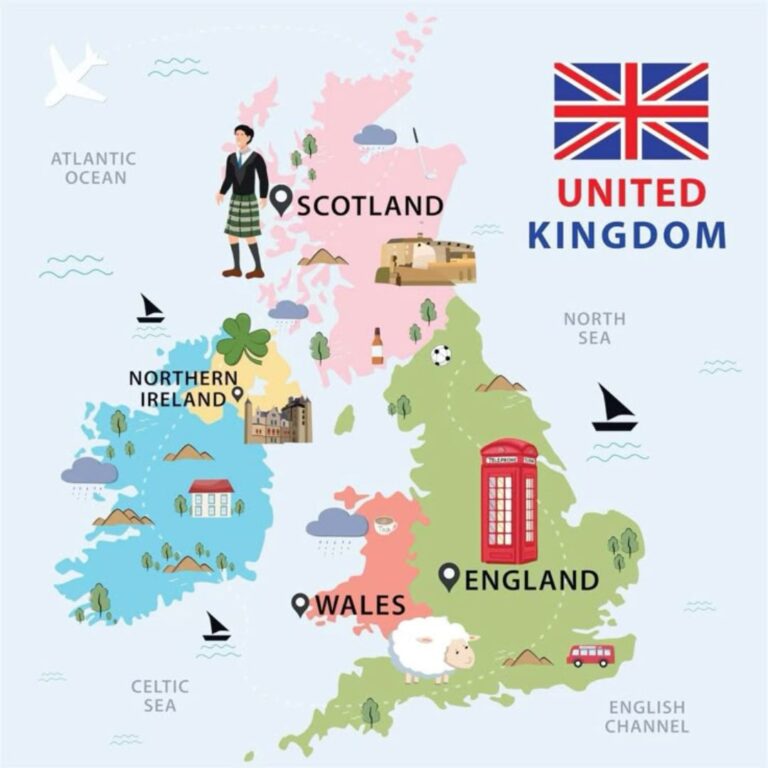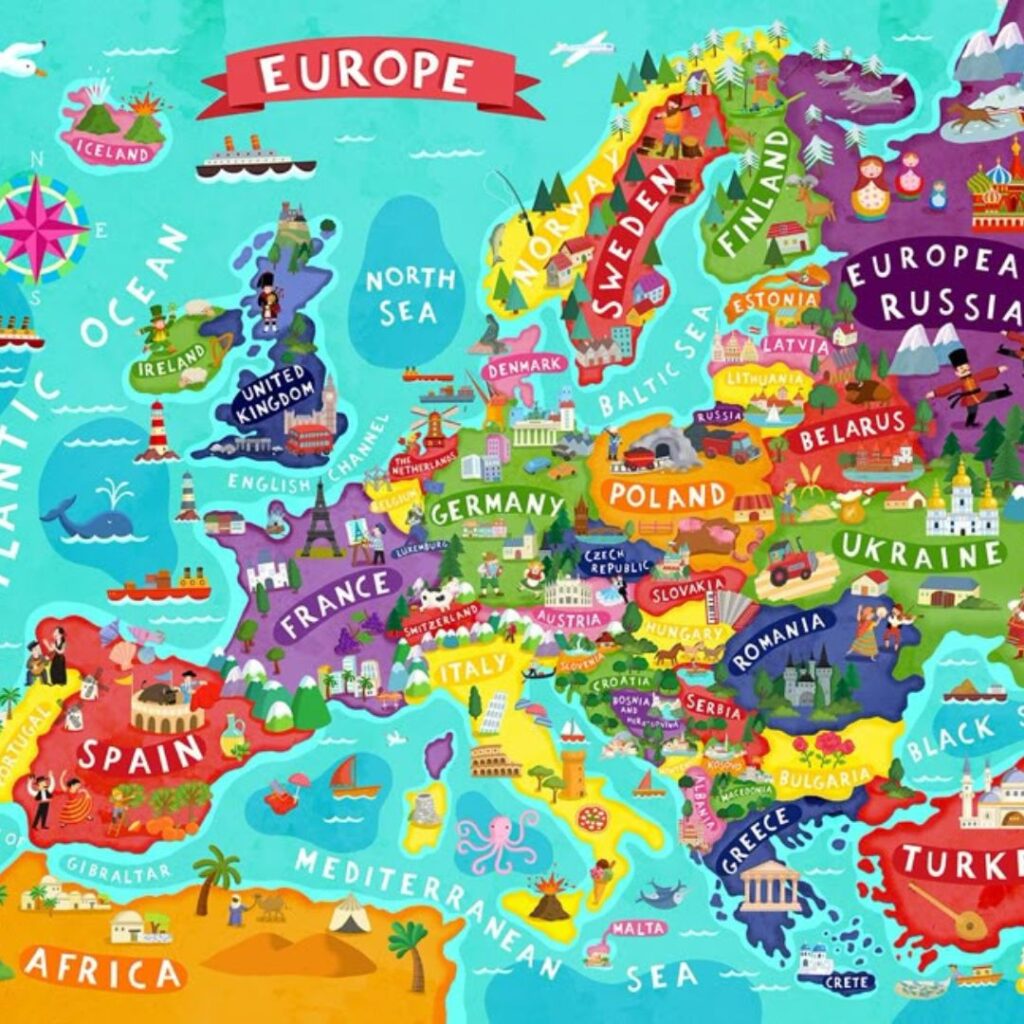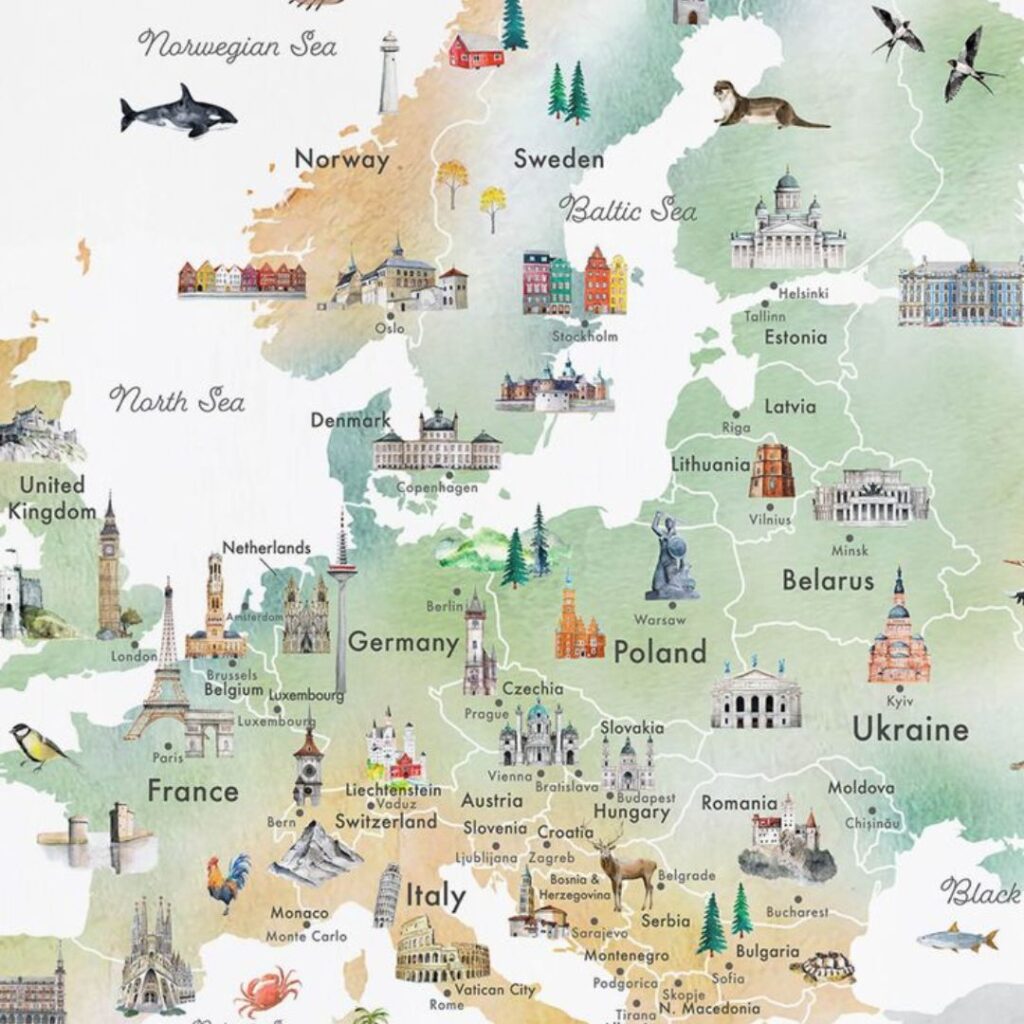

Choosing between studying in the UK or Europe can be a challenging decision. Both regions offer world-class education, cultural diversity, and career opportunities. However, each has its own advantages and challenges that international students should consider before making a decision.
Education System


United Kingdom
The UK follows a structured education system with undergraduate degrees typically lasting 3 years (except in Scotland, where it’s 4 years) and postgraduate degrees lasting 1 year.
- Globally recognized universities such as Oxford, Cambridge, Imperial College London, and UCL.
- Research-intensive institutions with strong industry links.
- Focus on independent learning and critical thinking.
Europe
European countries have diverse education systems. In countries like Germany and France, bachelor’s degrees typically last 3 years, while some programs may extend to 4 years.
- Public universities in countries like Germany, Norway, and Finland offer tuition-free education for EU and even non-EU students.
- Bologna Process ensures degree standardization across Europe.
- Language options: Some programs are in English, but many require knowledge of the local language.
Tuition Fees & Cost of Living


United Kingdom
Tuition Fees: Ranges from £10,000 to £38,000 per year for international students.
Living Costs: Estimated at £8,000 to £12,000 per year depending on the city (London is the most expensive).
Scholarships available but highly competitive.
Europe
- Tuition Fees: Many European countries offer free or low-cost education for international students (Germany, Norway, Finland, and Austria are notable examples).
- Living Costs: Vary significantly by country; Germany, France, and Spain are more affordable than Switzerland or the Netherlands.
- Many countries provide student discounts on public transport, museums, and entertainment.
Language & Communication


United Kingdom
- English is the primary language, making it easier for international students to adjust.
- Strong academic and professional English environment.
- IELTS, TOEFL, or PTE is required for non-native English speakers.
Europe
- Many universities offer English-taught programs, especially in Germany, the Netherlands, Sweden, and France.
- Local language proficiency may be required for certain courses and for better job prospects.
- Language barriers can be a challenge in smaller towns and non-touristic areas.
United Kingdom
- Post-Study Work Visa: Graduates can stay in the UK for 2 years after completing their degree (3 years for PhD students).
- Part-Time Work: Students can work 20 hours per week during term time and full-time during holidays.
- Strong job market with industries in finance, IT, healthcare, and business management.
Europe
- Many European countries offer post-study work visas, but rules vary.
- Germany has an 18-month post-study work visa; France offers 1-2 years for master’s graduates.
- Part-time work opportunities exist, but non-EU students may face restrictions in some countries.
- Countries like Germany, the Netherlands, and Sweden have strong job markets, while others may have language-related employment barriers.
Culture & Lifestyle


United Kingdom
- Rich history, multicultural environment, and vibrant student life.
- Famous for its pub culture, sports (football, cricket), and historic landmarks.
- Weather is mild but rainy, especially in cities like London and Manchester.
Europe
- Diverse cultures, each country offering unique traditions and experiences.
- Student-friendly cities like Berlin, Paris, Barcelona, and Amsterdam.
- Climate varies: Northern Europe (cold), Southern Europe (Mediterranean climate).
Admission Process & Requirements
United Kingdom
- Applications are submitted via UCAS (for undergraduate) or directly to universities for postgraduate programs.
- Requires IELTS or equivalent English test.
- Competitive admission process, especially for top universities.
Europe
- Varies by country; Germany uses Uni-Assist, while other countries have their own portals.
- Some universities require English proficiency tests; others need local language certifications.
- Documents like motivation letters, academic transcripts, and recommendation letters are required.
Travel & Mobility

United Kingdom
International students can travel within the UK easily via trains and domestic flights.
Student discounts available on public transport.
Limited access to Europe post-Brexit without a Schengen visa.

Europe
Schengen Visa allows students to travel across 26 European countries easily.
Well-connected train systems (Eurail, high-speed trains like TGV and ICE).
Budget-friendly airlines (Ryanair, EasyJet) make travel affordable.
Which One Should You Choose?
Choose the UK if:
You want an English-speaking environment.
You prefer a structured and research-driven education.
You need a post-study work visa with global job opportunities.
You are comfortable with higher tuition fees but faster degree completion.
Choose Europe if:
You want lower tuition fees or free education.
You are open to learning a new language for better job prospects.
You like traveling within multiple countries using the Schengen visa.
You want to experience diverse cultures and education systems.


